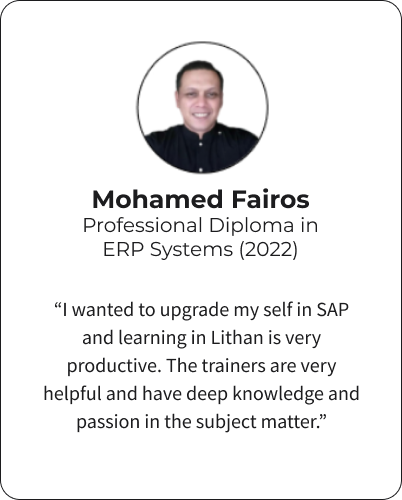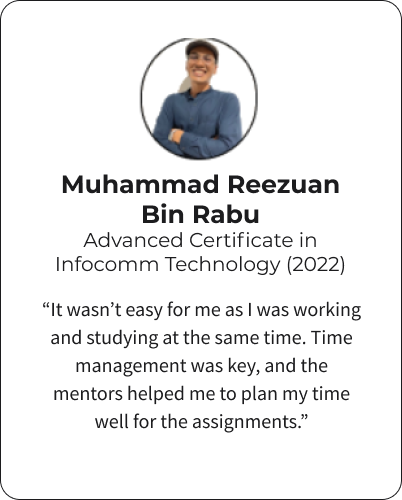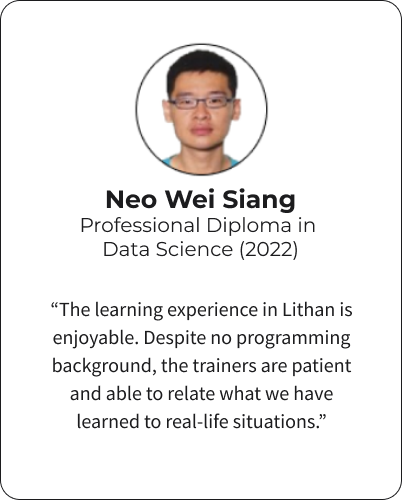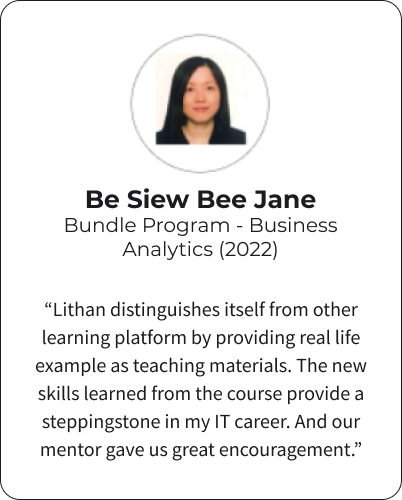Master of Business Administration
- Homepage
- Master of Business Administration

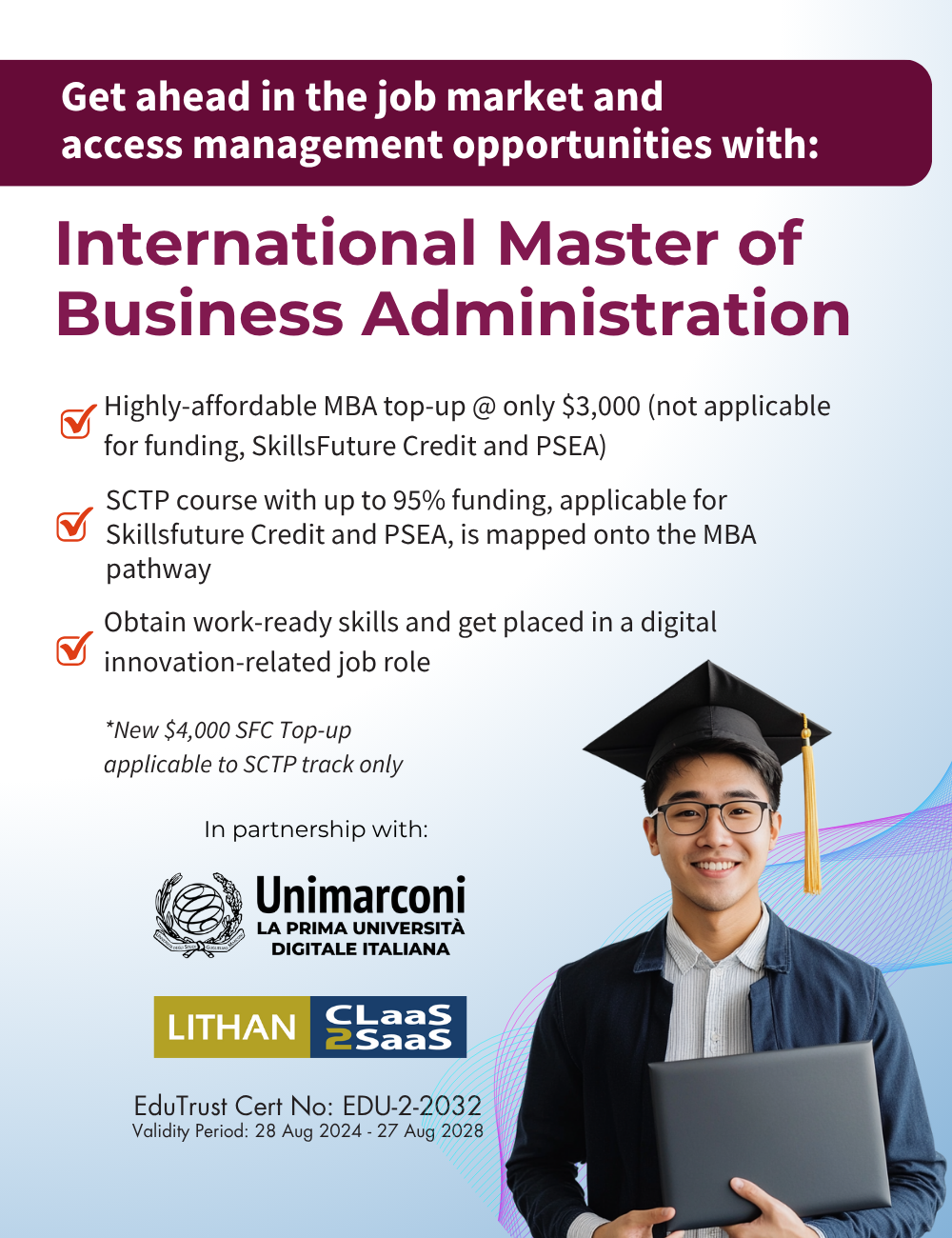
Why pursue an International MBA?

Academic qualifications still matter
A quick scan of popular job portals shows that the prerequisite for many PME roles is minimally a bachelor’s or master’s degree qualification. Master’s holders certainly have the edge.

Higher degree graduates are 100 times more rare
33% of locals are bachelor’s degree holders whereas only 0.3% are graduates of higher degrees*, resulting in master’s degree graduates having an academic advantage over most workplace peers and job applicants.

The IT & digital sector is booming post Covid
² ⁴Source: Report from Amazon Web Services (AWS)
Why pursue an International MBA?

Academic qualifications still matter
A quick scan of popular job portals shows that the prerequisite for many PME roles is minimally a bachelor’s or master’s degree qualification. Master’s holders certainly have the edge.

Higher degree graduates are 100 times more rare
33% of locals are bachelor’s degree holders whereas only 0.3% are graduates of higher degrees*, resulting in master’s degree graduates having an academic advantage over most workplace peers and job applicants.

The IT & digital sector is booming post Covid
² ⁴Source: Report from Amazon Web Services (AWS)
Why choose us

High Affordability
Enjoy up to 95% funding on SCTP courses and offset unfunded fees by SkillsFuture Credit and PSEA.

Non-invasive training schedule

More than 10 years of Job Placement Success
We have mapped our SCTP course and WSQ modules to the master's degree pathway. You will receive up to 95% funding for the SCTP course, and any unfunded fees can be offset by SkillsFuture Credit or PSEA to minimise any cash payment needed.
Profile | SSG Funding |
All Singapore citizens, permanent residents, and LTVP+ Holders | Up to 70% |
Singapore citizens, aged 40 and above | Up to 90% |
Singapore citizens who are jobseekers with greater needs*
only applicable for SCTP courses | Up to 95% |
- Long-term unemployed individuals (unemployed for six months or more); or
- Individuals in need of financial assistance – ComCare, Short-to-Medium Term Assistance (SMTA) recipients or Workfare Income Supplement (WIS) recipients; or
- Persons with Disabilities
Singaporean aged 25 and above will receive SkillsFuture Credits which can be used to offset course fees of eligible courses after any applicable funding.
The table below shows the different types of SkillsFuture Credits available and all of them can be used for our training programmes:
Types of SkillsFuture Credit | Amount |
Opening SkillsFuture Credit:
For all Singaporeans aged 25 years and above
Claimable for a wide range of SkillsFuture credit-eligible courses
Does not expire | $500 |
One-off SkillsFuture Top-Up: | $500 |
SkillsFuture Credit (Mid-Career): | $4,500 |
This is part of the Post-Secondary Education Scheme to help pay for the post-secondary education of Singaporeans.
It can be used for:
- Pay for your own or your siblings' approved programmes at approved institutions.
- Repay government education loans and financial schemes.
You can call 24-hour automated PSEA hotline at 6260 0777 to check your account balance and use them to offset course fees of eligible courses after any applicable funding.
Personalized, work-integrated & outcome-based learning journey to enable you to acquire work-ready skills
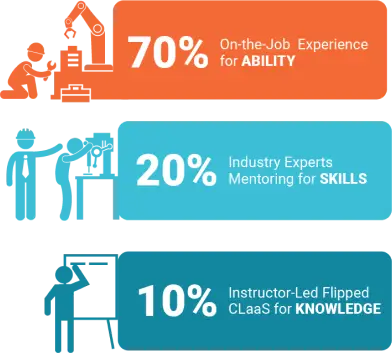
We adopt 70:20:10 work-integrated learning with industry experts mentoring on real-world projects to help learners obtained work-ready skills.
We deliver blended learning involving self-paced e-learning, live flipped classes, and project mentoring for a personalized learning journey to create work-study-life balance and learning efficiency.
Our Job Placement Assistance, with a proven track record of more than 10 years, is built upon a strong relationship with over 2,000 companies, with more than 100 of them actively hiring at any point in time.
Career Builder Workshop
1-to-1 Career Coaching
Review of Career Development Resources
Recruitment Activities & Interviews
Course Details
Course Details

Prerequisite

Prerequisite
Modules Overview
(SCTP) Professional Diploma in Digital Innovation
- SSG Module Reference No: TGS-2024051521
- Module Validity Date: 2027-01-31
- SSG Module Reference No: TGS-2024046898
- Module Validity Date: 2027-01-31
- SSG Module Reference No: TGS-2024051523
- Module Validity Date: 2027-01-31
- SSG Module Reference No: TGS-2024051520
- Module Validity Date: 2027-01-31
- SSG Module Reference No: TGS-2024043439
- Module Validity Date: 2027-01-31
- SSG Module Reference No: TGS-2024051522
- Module Validity Date: 2027-01-31
Additional Non-SCTP Modules
The Python Programming module provides learners with the necessary knowledge and skills to embark on their coding journey. Whether they are beginners or aspiring developers, this module offers a solid understanding of programming concepts and techniques. It covers fundamental principles such as programming languages, paradigms, and program execution, establishing a strong foundation in programming concepts and terminology that enhances learners’ ability to comprehend and test code. By engaging in practical exercises and hands-on activities, learners develop problem-solving skills and critical thinking abilities, improving their coding proficiency and enabling them to write efficient and well-structured code.
During the module project, learners demonstrate their ability to apply the knowledge and skills they have acquired by building software components. This project serves as a platform for showcasing their competence in analyzing technical requirements and translating them into robust designs. With their proficiency in programming paradigms and languages, learners can implement software components based on technical design. Furthermore, they develop the capability to ensure software quality by employing various testing methods. In summary, learners gain the ability to write well-structured code, apply object-oriented programming principles, conduct thorough testing, and effectively document their code, establishing a strong foundation for their future programming endeavors.
Other Information
- SSG Module Reference No: TGS-2023019693
- Module Validity Date: 2025-01-31
The ‘DevOps Engineering’ module empowers learners with essential knowledge and skills to excel in the dynamic field of DevOps. Throughout this comprehensive learning experience, participants will acquire expertise in critical areas of DevOps practices, facilitating seamless software development and deployment processes.
By engaging with the listed learning units, learners will embark on a transformative DevOps journey, understanding the significance of DevOps in modern enterprise development. They will delve into the implementation of Continuous Integration (CI) with Azure Pipelines and GitHub Actions, mastering the art of automating build, test, and deployment processes.
Furthermore, participants will learn to strategize and execute efficient release processes, ensuring smooth and controlled software deployments with Release strategy design and implementation. The module will also equip learners with the ability to implement secure continuous deployment using Azure Pipelines, emphasizing the importance of security in DevOps practices.
A key focus of the module lies in Infrastructure as Code (IaC) management, where learners will gain proficiency in automating Azure resource provisioning and configuration through code, enhancing consistency and scalability.
By successfully completing the module’s projects, participants will acquire hands-on experience in implementing DevOps practices. They will create robust CI/CD pipelines, employ Infrastructure as Code for efficient resource management, and ensure secure development using Azure technologies. Armed with these skills, learners will be well-prepared to excel in the realm of DevOps Engineering, contributing to the success of agile and high-performing software development teams.
Other Information
- SSG Module Reference No: TGS-2023020395
- Module Validity Date: 2025-01-31
MBA Top-up Modules
The Corporate Finance, Accounting, and Risk Management module, part of the Master of Business Administration – Digital Innovation & Entrepreneurship, equips students with essential financial and managerial skills. This module covers three key instructional units: Managerial Accounting, Corporate Finance, and Risk Management. Students will learn to analyze accounting information for organizational planning, control, and performance evaluation, while examining corporate capital structures, investment decisions, and dividend policies
They will differentiate between various financial, operational, strategic, and compliance risks and learn techniques for identifying, assessing, and mitigating these risks. Emphasis is placed on the importance of data-driven decision-making in corporate finance and risk management. By applying managerial accounting concepts and utilizing corporate finance models, students will optimize financial resource allocation, develop robust risk management strategies, and interpret financial data to inform strategic business decisions. Effective communication of financial and risk management information to stakeholders is also a key skill developed in this module.
Other Information
- SSG Module Reference No: NA
- Module Validity Date: NA
The Export Management, International Marketing & Negotiations module, part of the Master of Business Administration – Digital Innovation & Entrepreneurship, provides an in-depth exploration of key aspects of global business operations. This module comprises three instructional units: International Business, Export Management and International Trade, and Innovation for Export, with a focus on emerging technologies such as social networks, Open AI, and ChatGPT.
Students will evaluate the cultural, political, and economic factors that influence cross-border business activities, gaining a nuanced understanding of how these elements impact international trade and export management. The curriculum includes a comprehensive examination of effective strategies and practices for managing export operations, ensuring that students can navigate the complexities of international trade with confidence.
A significant aspect of the module is its emphasis on the role of emerging technologies and digital tools in enhancing export and marketing efforts. Students will explore how innovations like social networks, Open AI, and ChatGPT are reshaping international business operations and strategies. They will learn to formulate robust international business strategies, implement best practices in export management, and leverage digital platforms to boost marketing and export initiatives.
The module also focuses on integrating these technologies into international marketing and negotiation processes, helping students adapt their business models to capitalize on technological advancements. By combining theoretical knowledge with practical skills, this module equips students with the tools needed to drive innovation, gain a competitive edge in global markets, and effectively lead their organizations in an evolving international business environment.
Other Information
- SSG Module Reference No: NA
- Module Validity Date: NA
The International Business Law and Tax Strategy module, part of the Master of Business Administration – Digital Innovation & Entrepreneurship, provides a comprehensive understanding of the legal and tax landscapes essential for global business operations. This module comprises two critical instructional units: International Business Law and International Tax Planning. Students will gain in-depth knowledge of the legal framework governing cross-border transactions and operations, including regulatory requirements and dispute resolution mechanisms in international business. The curriculum emphasizes analyzing tax implications and strategies for businesses operating in multiple jurisdictions, highlighting the importance of navigating the legal and tax environments in global operations.
Through this module, students will develop the ability to apply legal principles to manage cross-border contractual agreements and resolve disputes effectively. They will learn to create tax optimization strategies aimed at minimizing the tax burden in international operations while ensuring compliance with legal and tax regulations. The course fosters skills in interpreting complex legal and tax frameworks, enabling students to adapt business practices to the evolving global legal and tax environments.
Additionally, the module focuses on enhancing communication skills, preparing students to work effectively with legal and tax professionals to support international business decisions. By integrating theoretical knowledge with practical applications, this module equips students with the essential tools to manage the legal and tax aspects of global business operations, ensuring their organizations remain compliant and competitive in the international marketplace. Graduates will emerge with a robust understanding of international business law and tax strategy, ready to tackle the complexities of global business with confidence and expertise.
Other Information
- SSG Module Reference No: NA
- Module Validity Date: NA
The Human Resources, Leadership, and People Management module, an essential part of the Master of Business Administration – Digital Innovation & Entrepreneurship, provides a comprehensive exploration of contemporary HR practices and leadership principles. This module includes instructional units on Human Resources Management, addressing HR challenges, and Leadership, People Management, and Cultural Intelligence. Students will gain a thorough understanding of key HR functions such as recruitment, training, and performance management. They will identify and tackle emerging HR challenges, including workforce diversity and talent retention, ensuring that they are equipped to handle the dynamic nature of modern workplaces.
The curriculum delves into the principles of effective leadership and people management within a global context, emphasizing the importance of cultural intelligence in managing and leading cross-cultural teams. Students will analyze the role of strategic HR policies in fostering a high-performing organizational culture, learning to formulate and implement these policies to support overarching organizational objectives.
By focusing on both theoretical knowledge and practical applications, the module prepares students to address emerging HR issues, develop leadership skills, and foster an inclusive and engaged workforce. Emphasis is placed on demonstrating cultural awareness and effectively collaborating with international stakeholders, which is crucial in today’s interconnected business environment. The module aims to cultivate an organizational culture that enhances employee engagement and productivity, driving overall business success.
Graduates will emerge with the ability to formulate strategic HR policies, address key HR challenges, develop effective leadership practices, and demonstrate cultural intelligence, ensuring they are well-prepared to manage and lead diverse teams in a global business landscape.
Other Information
- SSG Module Reference No: NA
- Module Validity Date: NA
- SSG Module Reference No: NA
- Module Validity Date: 2027-01-31
- SSG Module Reference No: NA
- Module Validity Date: 2027-01-31
Course fee and funding breakdown
Guglielmo Marconi University
Guglielmo Marconi University
About Lithan
Accredited by the Singapore government as a CET Centre (Continuing Education and Training)
Edutrust certified by SkillsFuture Singapore (SSG)
Internationally accredited by Pearson UK and Scottish Qualifications Authority (SQA)
About Lithan
Accredited by the Singapore government as a CET Centre (Continuing Education and Training)
Edutrust certified by Committee for Private Education (CPE)
Internationally accredited by Pearson UK and Scottish Qualifications Authority (SQA)
Awards and Accreditations
Microsoft Global Learning Partner of the Year Award (Finalist)
Pearson’s BTEC College of the Year 2019 Award for Asia
Dun&bradstreet’s Business Eminence Award 2020
Flame Innovation Award 2019 by SkillsFuture Singapore
APAC CIO Outlook’s Top 10 Provider of Education Tech Solution

